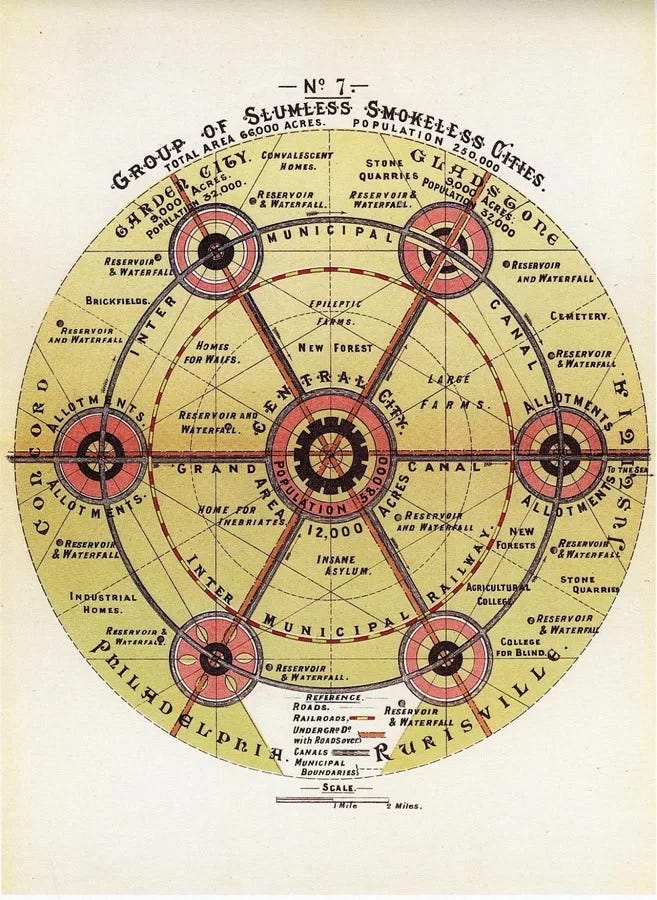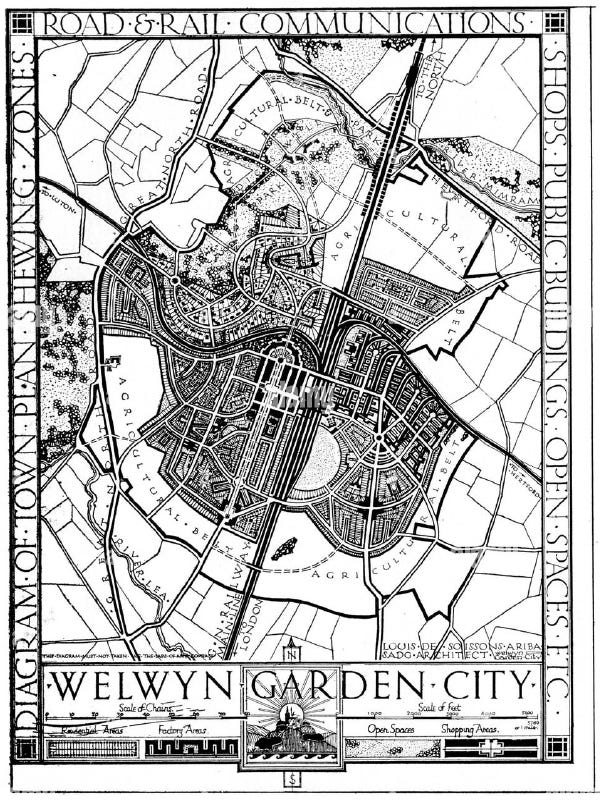What Can We Learn From Garden Cities?
In this introduction to a multi-part series on building better suburbs, I convey learnings from my recent architectural trip to England.
In this forthcoming series on building better suburbs, I will convey learnings from my recent architectural trip to England.
Last week I got back from England. The trip was part pleasure and part work, which often overlap for me. I love the work I do, so it doesn't feel like work, and I try to parlay it with some family time or social touring. My brother lives with his family in London, and I got to take my daughter - who recently expressed an interest in pursuing architecture - along on the trip. This was special because the trip was the National Townbuilding Association's first international trip, so we collectively studied British midlands and Hertfordshire-style housing with some of the best traditional architects and developers on the planet.
The specific theme of the trip was Garden Cities, a concept put forth by Ebenezer Howard in his 1898 book Garden Cities of To-morrow.

The topic of fixing America’s land use problems is a vast one. I will make no attempt to tackle it all in this series. But we will study the origin of much of today’s thinking and the progressive move to create idyllic new places—neither city nor country—for the purpose of human flourishing. 120 years later, it’s clear the original thinkers got some things rights and some things, well, not so much.
In this series, I will attempt to answer:
What are Garden Cities?
Why do they matter?
Are Garden Cities a perfect combination of urban opportunity and nature? Or just a sanitized suburb?
Are there ways to achieve the benefits of Garden Cities without the downsides of sprawl, isolation, and car dominance?
Were Garden Cities a net bad or good for society?
What can modern practitioners learn from Garden Cities?
The essays will include:
What Ebenezer Howard Got Right and Wrong
How Pre-Car Towns Prove That Cars Ruin Everything
Why Messy Incrementalism Always Wins Against Top-Down Master Planning
The series should roll out through the summer. Stay tuned, please share, and remember to subscribe, as it helps the publication grow.
© DPZ contributed images to this piece.





